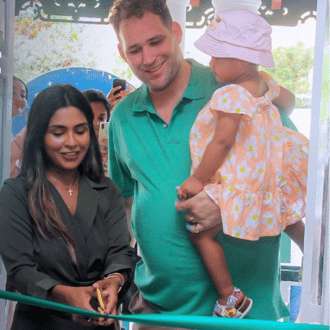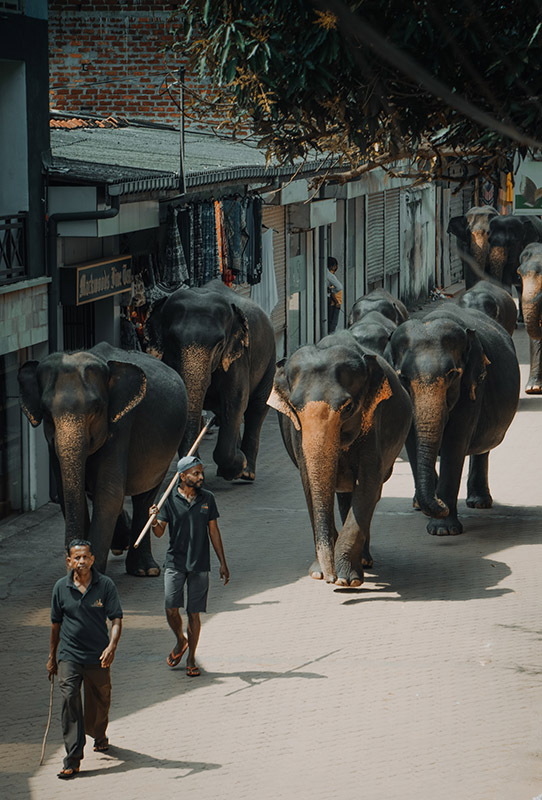
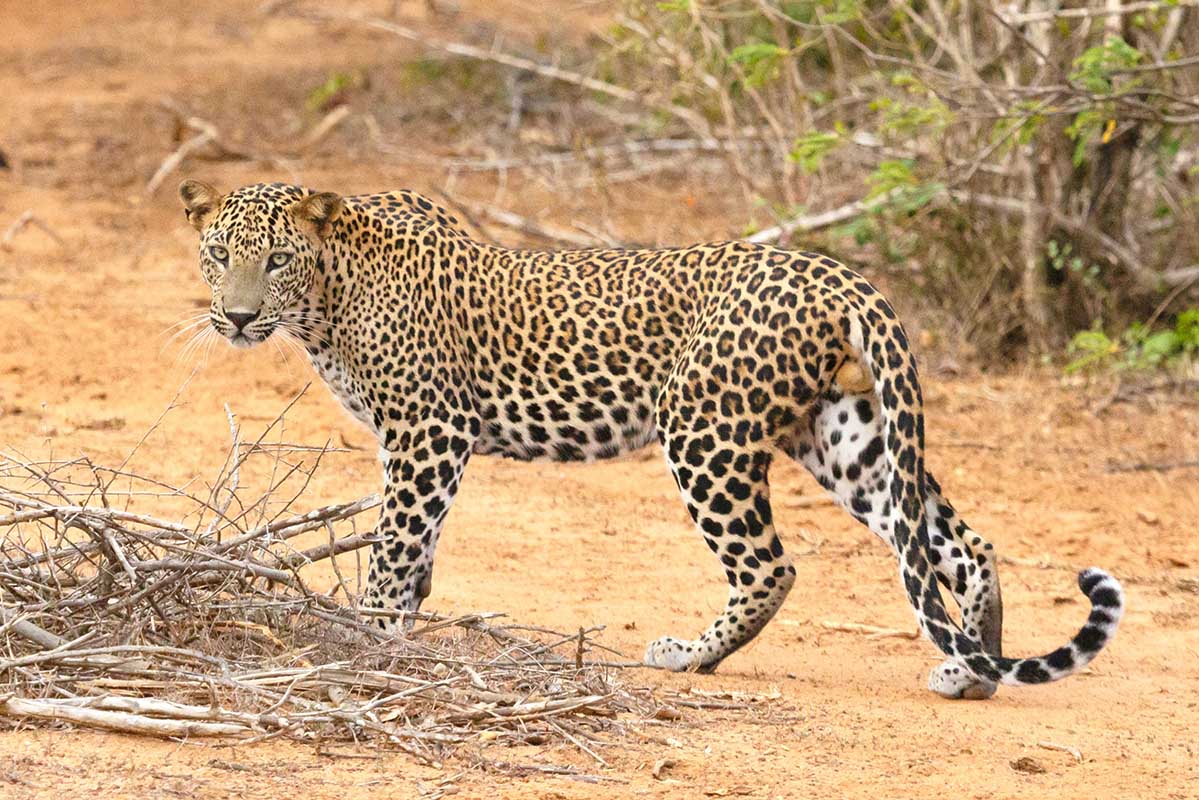
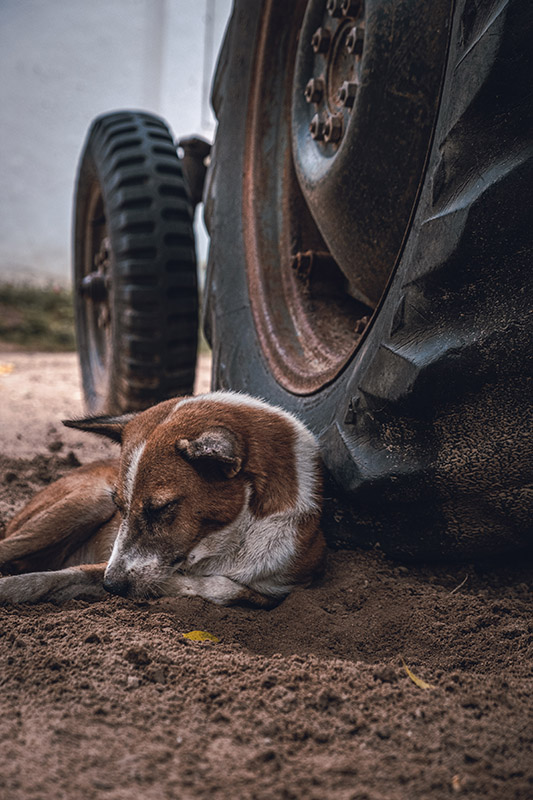
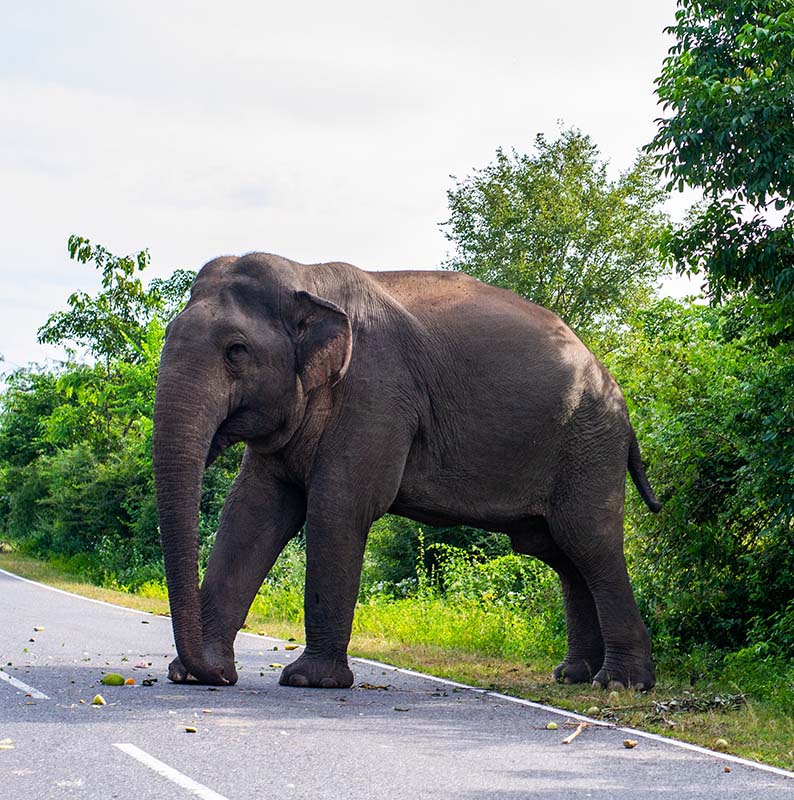
Animal cruelty has always been a prevalent topic especially in the recent past. Often we are rudely
awakened as to what a cruel world we live in as we see heart breaking videos and posts on social
platforms ranging from abandonment and shooting of pets, to brutal beatings of animals and even
negligence by our wildlife departments. The recent one being a mother elephant who was suffering
from a gunshot wound was tranquilized whilst drinking water in the hopes of treating her wound.
Although their intentions may have been pure due to the negligence and lack of experience on the part
of our wildlife department she ultimately fell into the water unconscious and drowned leaving her calf
an orphan.
Lately, amidst all the animals that are facing abuse, our elephants and leopards have been in the news
for all the wrong reasons. According to statistics we have lost over 309 elephants this year alone and
there are less than a thousand leopards alive today.
Earlier this year a video of an elephant repeatedly getting hit on the head whilst screaming in pain
surfaced reiterating the fact that elephants are better off in the wild than in the hands of humans for
example elephants used in peraheras suffer a unimaginable degree of pain from being forced to walk
draped in heavy ornamental clothing surrounded by noise and fire and having to endure long distance
journeys. Although there has been a constant appeal to stop this archaic tradition it has proved to be
futile. Ivory being of the most sought after commodity doesn’t work in their favour either. Another
reason for their untimely demise is the use of hakka pattas and this is used in other countries too – the
incident in Kerala where a pregnant elephant died as a result of it is only one such example.
In 2018 we all witnessed the brutal beating of a leopard and subsequent celebration of their kill in
Killinochchi. However lately our leopards are facing another threat - snares. They have been getting
caught and succumbing to their injuries which also begs the question as to why the setting up of
snares which is considered illegal under the Fauna and Flora Protection Ordinance is going
unchecked.
The only remaining black leopard (actually a black panther) in Sri Lanka was also a victim to this
even though he was treated relatively well for his injury which puts into focus the competency of our
wildlife department, the equipment they possess and their experience. Two other black leopards were
also killed in 2009 and 2013 and in the first half of this year alone six were caught in snares where
two out of the six perished. Being caught in a snare is as painful as dying by hakka pattas as here the
more the animal struggles the more it tightens around the animal’s organs ultimately suffocating him.
These are just a handful of the horrific incidents that have made headlines. The question here is why
have we given up on our animals? And what can we do to correct this attitude?
Instead of waiting for another unfortunate incident to fill our timelines and stories we must do
our best to educate people of the cruelty animals face each day. From stray dogs to the blue
whale each day a species reduces in number due to illegal human activity.
Lobbying to get a proper animal welfare bill passed has proved an uphill battle although some
other bills which aren’t as necessary are easily passed. A new bill has been a long time
coming so it is our duty to make sure that at least this generation succeeds. Right now it lacks
proportionately penalizing offenders who kill for fun or personal gain as there is only Rs 100
fine for shooting an innocent pet or even burning a dog to death ( remember Charlie ?). We
see offenders being taken in for questioning but that’s as far as most cases get and they don’t
face adequate punishment.
Scotland just passed a Bill on Animal Cruelty where a maximum penalty of five years will be
given to offenders making them the country with the toughest animal laws in the UK whilst
giving additional protection to service animals. If there was ever a time for us to follow
international standards this would be it.
They must take greater care in protecting these majestic creatures especially in the
management of the wildlife parks and sanctuaries. They need to have the necessary
experience and equipment to deal with such issues especially with regard to their response
time to save an animal in danger or as they call it ‘post capture recovery’. More importantly
they need to actually care and have love for the animals. It is not just another 9-5 job but a
national duty. There are even horrific incidents of poaching in our very own wildlife parks
which is ironic as the whole point of being in parks is so that they are protected from the
dangers they would normally face in the jungle. If the designated people are unable to protect
them how can we?
There are many organizations both locally and internationally which aim to protect and care
for animals that are in dire need of funds. By donating you can do your part for the animals.
Also check out local organizations who care for stray animals and see how you can help them
out either by donating items, money, adopting them or even just spending the day with them.
AWPA Shelter – 0773450031
Tikiri Trust Animal Shelter – 0777426229
Dogstar Foundation
Animal SOS Sri Lanka – Sanctuary – 0417921113
Embark- 0773429025
Millennium Elephant Foundation- 0773983783
Wildlife and Nature Protection Society – 0112887390
Other places include Baw Baw, Tails of Freedom, Adoptees LK, and Ray of Hope.
Somewhere along the way people forgot to teach the next generation the importance of not only being
kind to people but also to every living thing. It seems strange given that every religion advocates this
and even consider certain animals like the elephant sacred. They say kindness starts at home but this
is even more questionable when pets are mistreated by abandoning them, buying them purely for
breeding purposes and then discarding them or in general not caring for their wellbeing. Sri Lanka’s
wildlife and animal population is honestly one of the most precious things our country has to offer and
it is our civic duty to ensure that they too enjoy life in our little island.




